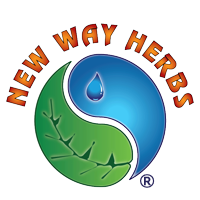Wild Lettuce helps with Restlessness and Insomnia
On sale right now at NewWayHerbs.com, Wild Lettuce has been considered to be a mild sedative that is known to calm the nerves, treat restlessness, anxiety, severe nervous disorders, neuroses, and has often been used to induce sleep, and treat insomnia and hyperactivity in children. Because it is soothing to the digestive system, it has also been helpful for colic.
Wild Lettuce Leaf, once considered an opium substitute, entered into medical practice as a sedative in the eighteenth century because of its similar, but non-addictive effects. Wild Lettuce has also been used as a diuretic and pain reliever.
It is believed to be an expectorant and has been effective in easing dry, irritating coughs, bronchitis, and asthma, as it helps to loosen and expel phlegm from the respiratory tract.
Used as a diuretic, it helps to promote and increase urine flow and is said to help in cases of urinary tract infections and dropsy (edema), which is the accumulation of fluid in tissues (swelling) or body cavities.
Wild Lettuce has been used to relieve pain, especially muscular pain and the joint pain of arthritis. It is also thought to relieve painful monthly periods.
Wild Lettuce helps to relieve chronic pain, muscle/joint pains, birth pains, headaches, and alleviate cramps.
Ingredients: Wild Lettuce, Distilled Water, 20% Alcohol.
Instructions: Use 6-12 drops in juice or water, under the tongue or as desired. May be taken 3 times daily. Shake well. Store in cool dark place. Keep out of reach of children.
Contraindications: Wild Lettuce should not be used in conjunction with prescription diuretics. The herb may cause drowsiness; however, when used in excess (many times the recommended dosage), it causes restlessness. Overuse (many time the recommended dosage) may cause slow breathing, severe tiredness, passing out, loss of consciousness or skin rash.
Disclaimer: The information presented herein by New Way Herbs is intended for educational purposes only. These statements have not been evaluated by the FDA and are not intended to diagnose, cure, treat or prevent disease. Individual results may vary, and before using any supplements, it is always advisable to consult with your own health care provider.

Comments are closed here.